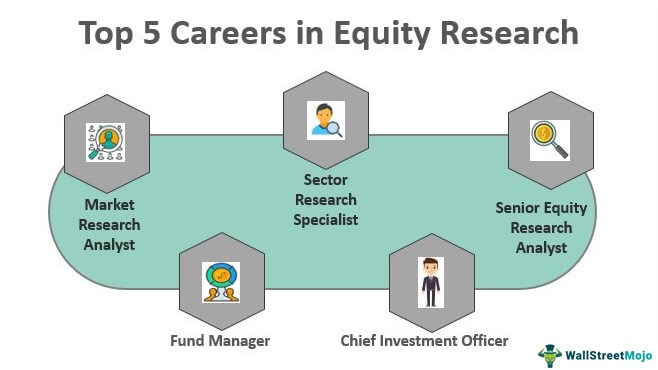Choosing the right degree program is one of the most important decisions you’ll make for your career. With countless options available, from traditional four-year programs to specialized certificates, finding the path that aligns with your professional goals can be overwhelming. The right degree can open doors to exciting opportunities, while the wrong choice can leave you stuck or unfulfilled. So, how do you ensure you’re heading in the right direction?
This guide will walk you through practical steps to help you choose a degree program that aligns with your career goals. Whether you’re just starting out or considering a career change, understanding your options and knowing how to evaluate them is essential.
1. Start with Self-Reflection

Before diving into degree catalogs and application forms, take a step back and reflect on what you want from your career. Start by asking yourself:
- What are my long-term career goals?
- What kind of job would excite me to get up in the morning?
- Do I prefer working with people, data, technology, or anything else?
- How much time am I willing to invest in education?
Think about your passions, interests, and strengths. Knowing what motivates you is critical because choosing a degree program isn’t just about what looks good on paper but what aligns with who you are. The more your degree reflects your true interests, the more engaged and successful you will be in your studies and career.
2. Research Career Options

Once you’ve done some self-reflection, it’s time to explore career possibilities. Understanding the career paths that interest you will help you determine which degrees align with your aspirations.
Some careers, such as nursing or law, require specific degrees and certifications. If you dream of becoming a lawyer, you’ll need a law degree. However, for other fields, such as business or technology, there may be multiple degree options that could lead to your desired career. For example, if you’re interested in marketing, you could pursue a degree in business, communications, or even psychology, depending on the specific niche you want to explore.
Look into the job market trends for the careers you’re interested in. What are the growth prospects? What qualifications do employers typically look for? Sites like the U.S. Bureau of Labor Statistics or LinkedIn’s Career Explorer tool can give insights into job demand and salaries for various professions.
3. Consider the Time and Financial Investment
Different degree programs require different levels of commitment, both in terms of time and money. Some career paths may only require a two-year associate degree, while others require a master’s or doctorate.
Consider how long you’re willing to stay in school and how much you’re prepared to invest financially. A four-year bachelor’s degree may open more doors than a two-year program, but it also comes with a higher price tag and longer time commitment.
If you’re balancing work, family, or other obligations, online or part-time degree programs might be worth considering. Many universities offer flexible schedules, allowing students to work while earning their degrees. Be honest about what works best for your lifestyle and long-term goals.
4. Evaluate Your Strengths and Weaknesses
Understanding your academic strengths and weaknesses can help you choose a degree program that plays to your advantage. If you’re good with numbers and enjoy problem-solving, a degree in finance or engineering might be a natural fit. However, a degree in English, journalism, or public relations might be more suitable if you excel at writing and communication.
Also, consider the skills you already have. If you’ve been working in a specific field for a few years, you might choose a degree that complements or enhances those skills, allowing you to leverage your experience into more advanced roles.
5. Explore Accreditation and Reputation
Not all degrees or institutions are created equal. Ensuring that a recognized accrediting body accredits the program you’re considering is important. Accreditation ensures that the program meets a certain level of quality and that employers and other educational institutions will recognize your degree.
Reputation also matters, particularly in specialized fields. Some schools are known for their business programs, while others are famous for their engineering or arts programs. Research the reputation of the schools and programs you’re interested in. Talk to alumni or read online reviews to understand the program’s strengths and weaknesses.
6. Seek Out Mentorship and Advice
Talking to people already working in your desired field can provide invaluable insights into the most beneficial degree paths. Contact professionals on LinkedIn or your local community and ask about their educational backgrounds.
Consider asking the following questions:
- What degree did they pursue?
- If they could do it over, would they choose the same path?
- Are there alternative routes that could have been just as effective?
You might discover that certain certifications or hands-on experiences are just as valuable as a traditional degree. On the flip side, you may also learn that some roles highly value advanced degrees, and skipping this step could limit your career growth.
7. Test the Waters
If you’re still unsure about committing to a particular degree program, consider taking introductory courses or earning a certificate in the field you’re interested in. Many universities offer online courses and certifications that allow you to explore a subject without the long-term commitment of a full degree.
This can be a low-risk way to test the waters and see if a particular field fits you before investing significant time and money into a degree program.
8. Weigh Future Career Flexibility
When choosing a degree program, consider its flexibility in the long run. While some degrees prepare you for specific jobs, others offer broader skills that can be applied in multiple fields. For instance, a degree in business administration can open doors in various industries, from healthcare to finance.
If you’re unsure about the exact job you want, choosing a degree that offers transferable skills – such as communication, problem-solving, or critical thinking – can provide you with more flexibility as your career evolves.
Conclusion
Choosing the right degree program is a personal and strategic decision that requires careful consideration. By taking the time to reflect on your goals, research your options, and understand the investment required, you can make an informed choice that sets you on the path to career success. Remember, this is your future – choose a program that excites and motivates you. You’ll be one step closer to achieving your career dreams with the right degree.
